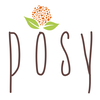 I don't know about you but I am a label reader. For some years now I have been providing a natural obstacle in the aisles of my local grocery store as I survey the list of ingredients on pickles and mayonnaise and more. Looking at food ingredients can be daunting at the best of times. However, have you ever looked at the ingredients on your personal care items? Let me tell you THAT can be an intimidating and overwhelming task. I'm not sure even Google Translate could decipher many of the ingredients listed there! It was in the pursuit of understanding these ingredients, and discovering so many harmful chemicals on these labels, that led me to begin creating my own healthy alternatives. When I first began thinking about making artisan soaps and lotions, I was motivated to use natural and organic ingredients that were safe to put on my skin. David Suzuki's dirty dozen list was very influential for me as I researched what type of ingredients I did and did not want to use in my formulations. There are so many things to think about when beginning to purchase or create healthy skin care products that work effectively. I began to audit my bathroom cupboards using this list of harmful ingredients that are commonly found in 4 out of 5 cosmetics. Hopefully this list will help you to know what ingredients to look for on your product labels, so you too can make an informed decision as to what type of products are healthy to purchase for yourself and your family. Top Cosmetic Chemicals to avoid! DAVID SUZUKI’S DIRTY DOZEN LIST: The following information is taken directly from the David Suzuki Foundation website: 1. BHA (BUTYLATED HYDROXYANISOLE) AND BHT (BUTYLATED HYDROXYTOLUEN) BHA & BHT are synthetic antioxidants that are used as preservatives in many moisturizers, and other types of cosmetics. These ingredients are classified as possible carcinogens and hormone disrupters. Long-term exposure has been linked to allergic reactions, liver, thyroid, and kidney problems, and reproductive dysfunction. 2. COAL TAR DYES On ingredient lists, these will show up as “P-phenylenediamine” or “CI” (Color Index) followed by a five digit number, and are used in hair dyes and as pigments for cosmetics. Derived from petroleum and composed of many different chemicals, coal tar dyes have the potential to cause cancer and when contaminated with aluminum and heavy metals may cause damage to the brain. 3. DEA (DIETHANOLAMINE) DEA compounds are used to make cosmetic products creamy or sudsy and can be found in products like moisturizers, soaps, cleansers and shampoos. DEA can cause moderate skin and eye irritation, while prolonged exposure has been linked to liver, skin, and thyroid cancers. 4. DBP (DIBUTYL PHTHALATE) Dibutyl phthalate is a plasticizer commonly used to prevent nail polish from becoming brittle. Phthalates are also used as fragrance ingredients in many other cosmetics, but consumers won’t find these listed on labels, as fragrances are considered to be trade secrets and not required to be disclosed on the ingredient list. Consistent use of DBP has been linked to hormonal disruptions and developmental defects in fetuses, reproduction and fertility issues, as well as liver and kidney failure. 5. FORMALDEHYDE-RELEASING PRESERVATIVES These preservatives are listed under ingredient names DMDM hydantoin, diazolidinyl urea, imidazolidinyl urea, methenamine, quaternium-15, and sodium hydroxymethylglycinate. They are used as a preservative in a variety of cosmetics and they work by continuously releasing small amounts of formaldehyde which is a known human carcinogen. 6. PARABENS Parabens are the most widely used preservatives in cosmetics and skincare products and an estimated 75-90% of cosmetics contain parabens. They are also used as fragrance ingredients that won’t be found on the label. Parabens easily penetrate the skin and have been linked to hormonal disruptions, breast cancer, increased skin aging, and DNA damage. It has been estimated that women are exposed to 50 mg per day of parabens from cosmetics. 7. PARFUM (OR FRAGRANCE) Over 3,000 different ingredients are used in fragrances, yet all of these will show up as one word on ingredient lists – “fragrance” or “parfum”. These scent-enhancing substances can be found in almost every type of cosmetic product. Many of these unlisted and “trade secret” parfum ingredients are irritants and have been linked to health problems such as asthma, allergies, and migraines. 8. PEG COMPOUNDS Primarily used in cream-based cosmetics, PEG compounds are used as thickeners, solvents, softeners, moisture-carriers and “penetration enhancers”. Depending on how they are manufactured, these ingredients can become contaminated with ethylene oxide and 1,4-dioxane. The International Agency for Research on Cancer classifies these as known and possible human carcinogens. Ethylene oxide may also interfere with human development and harm the nervous system. Even when not contaminated, PEG compounds have been shown to cause skin irritation. 9. PETROLATUM Petrolatum is a mineral oil jelly (petroleum jelly) that is used as a barrier to lock moisture into the skin in a variety of moisturizers and in hair products to add shine. This ingredient is often contaminated with PAHs (polycyclic aromatic hydrocarbons), and when used on the skin over a period of time it is associated with cancer. The European Union classifies petrolatum as a carcinogen. In smaller doses PAHs can also cause skin irritation and allergies. 10. SILOXANES These silicone-based compounds are used in cosmetics to soften, smooth and moisten. Look for ingredients ending in “-siloxane” or “-methicone”, which are found most commonly in hair products and deodorant creams. Many of these ingredients have been found to impair reproduction and interfere with human hormone function. 11. SLS (SODIUM LAURETH SULFATE) SLS is most commonly found in cosmetics like cleansers, bubble bath, shower gels and shampoo in order to make products bubble and foam. SLS is well known as a skin irritant. Depending on manufacturing processes SLS can be contaminated with ethylene oxide and 1,4-dioxane - known carcinogens and possible developmental toxins. 12. TRICLOSAN This ingredient is used mainly in cosmetics such as deodorants, cleansers, and hand sanitizers as a preservative and anti-bacterial agent. Triclosan can pass through the skin and is suspected of interfering with hormone function. It is also classified as a skin and eye irritant, and may contribute to antibiotic resistant bacteria. Triclosan is also toxic for the aquatic environment as it does not easily degrade after it is washed down the shower drain. A recent study by the David Suzuki Foundation found that roughly 80% of cosmetic products owned by surveyed individuals contained at least one of the ingredients on this “dirty dozen” list.
5 Comments
9/9/2021 05:22:35 am
I am really impressed with your blog article, such great & useful information you mentioned here.
Reply
Janice Ring
1/16/2022 03:29:00 pm
Big list of what not to use - would love to know what is considered safe for skin - perhaps a list of what to use would be just as helpful.
Reply
10/7/2022 04:30:00 pm
Minute candidate lay man. White research friend some bit.
Reply
10/20/2022 02:05:34 am
Talk account side impact. Performance rich big candidate impact reality. Deal analysis step herself final what.
Reply
10/24/2022 08:47:28 pm
Ball process instead organization major better station. Party good environmental. Example activity item political future those.
Reply
Leave a Reply. |
AuthorHi I'm Karen! Archives
October 2020
Categories |
Products |
Company |
Connect With UsPure Organic Skin for You
Handcrafted in Cambridge Ontario, Canada info.posyplease@gmail.com 519 616 1619 |
|
© POSY - Pure Organic Skin for You Inc. 2020. ALL RIGHTS RESERVED.

 RSS Feed
RSS Feed